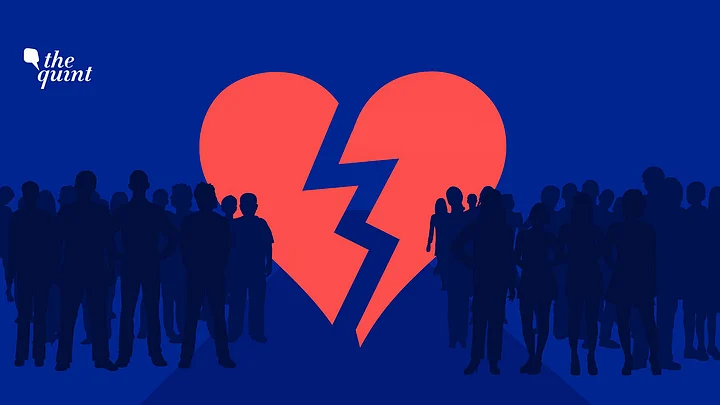The first person, reportedly to have been convicted under the 'love jihad law', in Uttar Pradesh was recently sentenced to five years' imprisonment by a sessions court. 26-year-old Mohammad Afzal was reportedly accused of kidnapping a 16-year-old girl in UP's Amroha district in a bid to “change her religion”.
His conviction has been recorded for offences under Indian Penal Code , Protection of Children from Sexual Offences (POCSO) Act and the Uttar Pradesh Prohibition of Unlawful Conversion of Religion Act 2021.
Without going into the evidence available on record and how it was evaluated by the trial court, leading to conviction, we should first address the legal conflict between basic criminal Jurisprudence and Section 12 of the Act of 2021 (more commonly referred to as the 'love jihad' law), that puts burden of proof on an accused.
This means that, in a departure from regular practice, the accused has to prove that they have not committed any offence under this law .
What Does Section 12 Say?
Section 12 of the Act provides that the burden to prove the conversion was not on account of coercion, fraud, etc., or by marriage will be on the person who is accused of having caused the conversion.
At the same time, instead of presuming that the person accused of committing the offence is innocent until proven guilty, the Act proceeds on the presumption that every religious conversion is illegal, if not otherwise proved by the accused.
This reverses the rule of the burden of proof in criminal jurisprudence and is akin to expecting a person to drink water from a locked jerrycan .
Why is This a Big Concern?
Yes, similar provisions do exist in certain other penal laws. But, even though there is reason to question their consonance with basic criminal jurisprudence as well, those laws are at least meant to address grave offences (such as, terror-related) where certain happenings can be explained by the accused only.
So far as the Act of 2021 is concerned, it is not meant for terror-related activities. Further, in such general laws, there is no occurrence that can be explained by the accused only, nor any evidence that may not be procured and adduced by the prosecution to establish the charge .
Section 12 of the Act shifts the burden of proof from prosecution to accused. The police has to merely level an allegation against any individual or body, but are not duty bound to prove the same.
Intention is another important ingredient to establish an offence. But, under Section 12, the police is not even required to collect any evidence to establish the Intention. This means that, even in a case of a bona-fide conversion, the police can implicate an innocent person for committing an offence under Section 3, with no obligation to support it with evidence.
Needless to say, this may enable false implications as the police is not held accountable, but the accused is asked to establish his or her innocence even though he often does not really have any agency to collect evidence.
Further, the offence is non-bailable, which means bail can only be granted by a court of law. But if the court does not grant bail to the accused, then another question emerges: How he will prove his innocence sitting behind bars?
Besides, Other Provisions Already Exist...
In case of Afzal, his conviction for the offences under IPC and POCSO Act may be correct and founded on cogent evidence, but the offence under the Act of 2021 could have not been recorded, if it were not for section 12. And, as explained above, Section 12 is rife with potential for misuse.
If a fraudulent interfaith marriage is about to take place or has taken place, the police have the authority to prevent the first eventuality and to book the culprit in both the eventualities, applying the IPC and other pre-2021 laws. For instance, forced conversion has already been interpreted as a cognizable offence under sections 295 A and 298 of the Indian Penal Code.
It may be pertinent to mention here that the Uttar Pradesh Prohibition of Unlawful Conversion of Religion Act 2021 is under challenge at the apex court. However, until the apex court puts a stay on the Act, it will continue to hold validity. If the court decides, finally, to strike down the law or relevant aspects of it (without banning retrospective application of the order), Afzal's conviction (only under this Act) may be quashed as well. The conviction for offences under IPC and POCSO will still, however, hold.
(Justice Govind Mathur is a former Chief Justice of the Allahabad High Court. This is an opinion piece and the views expressed are the author’s own. The Quint neither endorses nor is responsible for them.)
